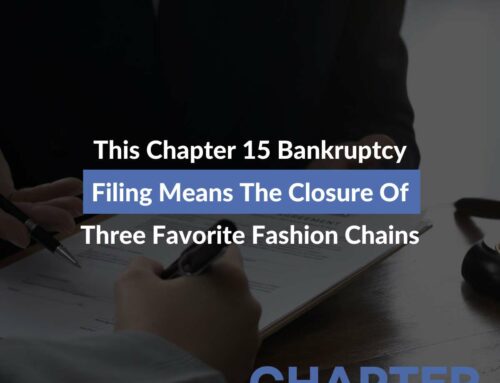Paying off debts is difficult, and creditors often become impatient while waiting for their bills to be repaid. If a creditor wishes to intensify the debt collection process, they might pursue a judgment against the debtor. If the debtor can’t fight the lawsuit and prove they don’t owe the alleged debt, or if the debtor fails to respond and the creditor obtains a default judgment, the creditor can use the judgment to ramp up collection efforts. One of the most effective ways a creditor can collect upon a debt after obtaining a judgment is through a wage garnishment. Wage garnishments are effective for creditors, but can be absolutely devastating for the person whose wages are being garnished. When a wage garnishment proves to be too huge of a drain on someone’s income, bankruptcy might be able to help. If you’re considering bankruptcy in the Mesa or Tempe area, contact our firm for your free consultation at 480-405-1010.

Standard Wage Garnishment
In Arizona, most debts- think credit cards, personal loans, etc.,- can be garnished at a rate of 25%. This is a considerable chunk of the debtor’s income and will undoubtedly make their financial situation worse. A creditor can also tack interest fees and attorney’s fees onto the original debt’s balance to create an even higher balance that will take even longer to repay. The debtor can request relief from the court if the wage garnishment becomes too much of a burden to bear. If the debtor can prove to a court of law that the wage garnishment, the court can reduce the garnishment to 15%. However, 15% is the lowest to which the garnishment can be reduced. This is still a substantial portion of the debtor’s pay and might not be sufficient to help them make ends meet. If so, bankruptcy may be an option to clear a wage garnishment and the original debt attached to that judgment. For more information about filing for bankruptcy to stop a wage garnishment in Mesa or Tempe, call 480-405-1010.
Medical Debt Wage Garnishment
Medical debt is the leading cause of bankruptcy in the United States. When someone experiences a serious illness or injury, they may also be temporarily or permanently unable to work and therefore experience reduced income in addition to increased expenses from medical care. The good news is that creditors are more restricted when it comes to pursuing medical debts than other types of debts. Prop 209 was passed in 2022 in Arizona and created limits for medical debt creditors such as a maximum interest rate of 3%. Medical debts previously were garnished like other debts at a rate of 25% that could be reduced to 15% upon a showing of undue financial hardship. Prop 209 also reduced the maximum wage garnishment for medical debts to 10%. For more information about discharging medical debt through bankruptcy in Arizona, call 480-405-1010 to set up your free consultation with our firm.
Child Support Wage Garnishment
Parents have an obligation to financially provide for their children, and the increased limits on wage garnishments for child support are reflective of that. Many parents have wage garnishments in place not because of a previous failure to pay child support, but simply to expedite and clarify the process of paying child support. The maximum garnishment for child support is much higher than any other type of wage garnishment in Arizona. It can also be affected by whether or not the parent ordered to pay child support has dependents (i.e., a spouse or other minor children) besides the child for which they are supposed to pay support. It can also be affected by how far behind that parent falls on payments. For a parent with no other dependents, the maximum wage garnishment for child support is 60%. If that parent falls behind by 12 weeks or more, it can be increased by 5% to 65%. For a parent with other dependents, the maximum wage garnishment is 50% which can be increased to 55% if the parent falls 12 weeks or more behind on payments.
A parent who is behind on child support payments and wishes to stop a child support wage garnishment should file for chapter 13 bankruptcy. Filing for chapter 7 bankruptcy doesn’t clear child support debt. Additionally, the automatic stay from a chapter 7 bankruptcy filing does NOT stop a child support wage garnishment. Only a chapter 13 filing that arranges for full repayment of child support in arrears can stop a child support wage garnishment.
A wage garnishment isn’t the only negative consequence a parent can face if they fail to pay court-ordered child support. The government can take away a parent’s driver’s license or even their passport if they fail to make their monthly payments. States cooperate with each other to share child support information so that a parent can’t move states to avoid their obligation. When a parent has the financial ability to pay court-ordered child support but simply refuses to comply with court orders, this can be considered a jailable offense. If you are struggling to make child support payments, you should request a modification before the balance in arrears becomes out of control. For a consultation with a full-service Mesa law firm that practices both bankruptcy and family law, call 480-405-1010.
Student Loan Wage Garnishment
Despite massive student loan forgiveness efforts by the Biden-Harris administration, many people still struggle to pay off educational debt and may even have a wage garnishment in place. While not entirely impossible to discharge in bankruptcy like child support, student loans are more complicated to discharge than other types of unsecured debts like credit cards and medical bills. The maximum wage garnishment for a private student loan is 25%, and for a federal student loan is 15%. The automatic stay from a chapter 7 and chapter 13 bankruptcy will pause a student loan wage garnishment, but the garnishment will resume after the case is discharged if the loan isn’t discharged or paid off in the meantime. For more information about filing bankruptcy to deal with student loan debt in Mesa or Tempe, Arizona, call 480-405-1010 for your free consultation.
Are You Considering a Bankruptcy Filing In Mesa, Arizona? Start With a Free Consultation.
A wage garnishment could be a driving force behind your bankruptcy considerations or just one of several issues that would make a bankruptcy declaration beneficial. To ensure the protection from your case’s automatic stay remain in good standing, you should seek legal guidance from an experienced Chapter Bankruptcy Lawyers. Our dedicated staff and attorneys can make sure your petition is crafted accurately and your filing is executed without mistakes or delays. We can handle specialized issues like emergency filings and adversary proceedings, taking the guesswork out of a legal matter that can be complex and have lasting consequences when certain precautions aren’t taken. We also offer flexible payment plans that make paying for bankruptcy more affordable than you might think- most of our clients qualify to file for bankruptcy for $0 down. When you’re ready to schedule your free consultation by phone, contact us or call 480-405-1010 to get started.
CHAPTER BANKRUPTCY LAWYERS
Email: [email protected]
Website: www.chapterbankruptcylaw.com
Mesa Office
3707 E Southern Ave
Mesa, AZ 85206
Office: 480-405-1010
Tempe Office
4500 S Lakeshore Dr #300
Tempe, AZ 85282
Office: 480-562-6145






